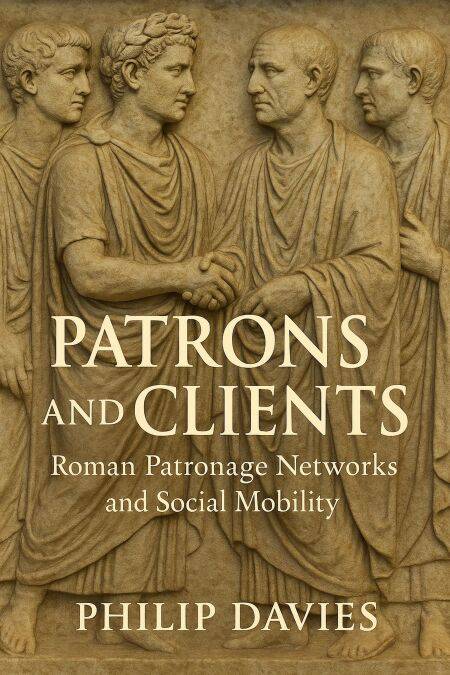
- Afhalen na 1 uur in een winkel met voorraad
- Gratis thuislevering in België vanaf € 30
- Ruim aanbod met 7 miljoen producten
- Afhalen na 1 uur in een winkel met voorraad
- Gratis thuislevering in België vanaf € 30
- Ruim aanbod met 7 miljoen producten
Patrons and Clients: Roman Patronage Networks and Social Mobility E-BOOK
Philip DaviesOmschrijving
"Patrons and Clients: Roman Patronage Networks and Social Mobility" by Philip Davies explores the intricate system of patronage in ancient Rome and its impact on social structures and mobility. The book delves into how patronage networks—central to Roman political, economic, and social life—shaped individual careers, from the elite senators to the common plebeians, and offered both opportunities and limitations for social advancement.
Through a detailed analysis, the book examines how the relationship between patrons (wealthy, influential figures) and their clients (often lower-status individuals) was not only a social contract but also a mechanism for maintaining order and stability within Roman society. Patrons offered protection, financial support, and career opportunities in exchange for loyalty and service, while clients, though dependent, often ascended in status through these ties.
Davies highlights the complexities of patronage, from the legal and military realms to cultural and intellectual spheres, illustrating how these networks influenced the rise of political leaders and the decline of the Roman Republic. The book also looks at the later evolution of patronage systems, showing how they persisted even as the empire shifted from a republic to an imperial structure, and how the practice of patronage laid the foundations for the feudal systems of the Middle Ages.
In a broader context, this work sheds light on the social dynamics of ancient Rome, offering insights into the strategies of upward mobility, the concentration of power, and the mechanisms of governance, which resonate with political structures in later history.
Specificaties
Betrokkenen
- Auteur(s):
- Uitgeverij:
Inhoud
- Taal:
- Engels
Eigenschappen
- Productcode (EAN):
- 9798230899181
- Verschijningsdatum:
- 16/04/2025
- Uitvoering:
- E-book
- Formaat:
- ePub

Alleen bij Standaard Boekhandel
Beoordelingen
We publiceren alleen reviews die voldoen aan de voorwaarden voor reviews. Bekijk onze voorwaarden voor reviews.











